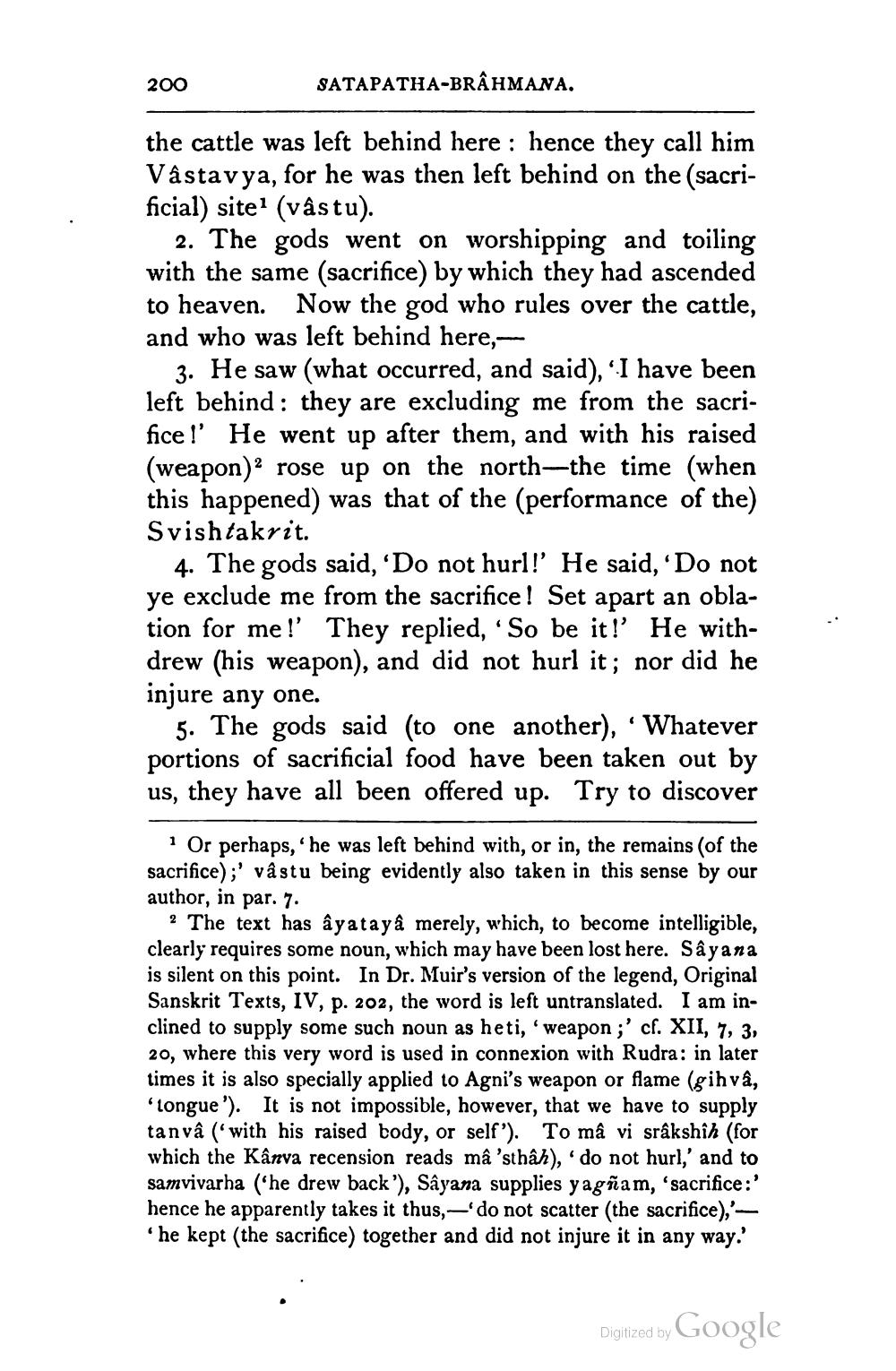________________
200
SATAPATHA-BRAHMANA.
the cattle was left behind here : hence they call him Vastavya, for he was then left behind on the (sacrificial) site? (vâstu).
2. The gods went on worshipping and toiling with the same (sacrifice) by which they had ascended to heaven. Now the god who rules over the cattle, and who was left behind here,
3. He saw (what occurred, and said), 'I have been left behind: they are excluding me from the sacrifice!' He went up after them, and with his raised (weapon)? rose up on the north-the time (when this happened) was that of the (performance of the) Svishtakrit.
4. The gods said, 'Do not hurl!' He said, 'Do not ye exclude me from the sacrifice! Set apart an oblation for me!' They replied, 'So be it!' He withdrew (his weapon), and did not hurl it; nor did he injure any one.
5. The gods said (to one another), 'Whatever portions of sacrificial food have been taken out by us, they have all been offered up. Try to discover
i Or perhaps, he was left behind with, or in, the remains (of the sacrifice);' vâstu being evidently also taken in this sense by our author, in par. 7.
2 The text has â yatay â merely, which, to become intelligible, clearly requires some noun, which may have been lost here. Sâyana is silent on this point. In Dr. Muir's version of the legend, Original Sanskrit Texts, IV, p. 202, the word is left untranslated. I am inclined to supply some such noun as heti, weapon ;' cf. XII, 7, 3, 20, where this very word is used in connexion with Rudra: in later times it is also specially applied to Agni's weapon or flame (gih vâ, 'tongue'). It is not impossible, however, that we have to supply tanvâ with his raised body, or self'). To ma vi srâkshih (for which the Kanva recension reads mâ'sthân), do not hurl,' and to samvivarha ('he drew back'), Sâyana supplies yagñam, sacrifice:' hence he apparently takes it thus,-'do not scatter (the sacrifice), "he kept (the sacrifice) together and did not injure it in any way.'
Digitized by Google




